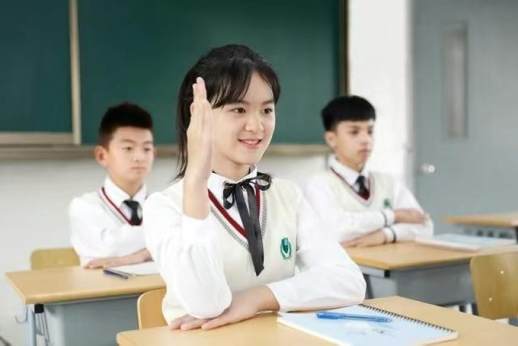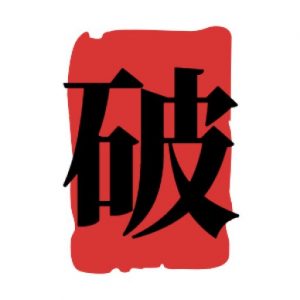diary的复数
Lesson 2: A Visit to the Dental Clinic
第二课:拜访牙医诊所
1. Have you experienced a toothache?
你曾经历过牙疼吗?
How do you care for your oral health?
你是如何关爱你的牙齿的?
1.1 Toothache is a countable noun, referring to pain in the teeth.
1.2 Take care of is synonymous with look after or care for, meaning to protect and maintain something.
Take good care of implies providing thorough care or attention.
Caring for the elderly and providing support for the young are noble traditions in Chinese culture.
1.3 The plural form of tooth is teeth.
2. Dearest Diary,
Visiting the dentist fills me with trepidation.
The reason for this apprehension is unknown to me, but it has been a persistent fear since my childhood.
Whenever my mother suggests a dental appointment, I decline without hesitation.
2.1 Afraid is an adjective that can be used in different phrases:
① Be afraid of sb./sth.: Expresses fear towards a person or object.
② Be afraid to do sth./of doing sth.: Conveys reluctance or fear towards a specific action.
③ Be afraid (that)...
④ I'm afraid so/not.
2.2 Go to the dentist refers to the act of visiting a dentistry professional for oral care.
2.3 The usage of since:
2.3.1 Since as a preposition, followed by a specific point in time, triggers the use of continuous verbs in the main clause, often in conjunction with the present perfect, present perfect continuous, or past perfect tenses. For example:
He departed the village in 1982, and I haven't seen him since.
2.3.2 Since as an adverb, denoting a situation or condition that has been ongoing from the past to the present, frequently appears in present perfect constructions. For example:
He left home two weeks ago, and we haven't heard from him since.
2.3.3 Since can introduce causal clauses:
① As a conjunction, since can introduce a causal clause, expressing the reason for something: For instance:
He didn't attend because he was occupied with work.
2.3.4 Since can introduce time clauses:
① If the predicate in the since clause is a finite verb in the past tense, the clause signifies a period commencing when the action occurred. For example:
He has been studying diligently since enrolling in our institution.
② When the predicate in the since clause is a continuous verb or stative verb in the past tense, the clause indicates a period from the moment of action or state until a point in the past. For example:
I haven't heard any noise since falling asleep.
③ If the predicate in the since clause is a continuous verb in the present perfect tense, the clause signifies an action or state that has been ongoing up to the present (moment of speaking), with the starting point being when the action commenced. For example:
I haven't heard from him since he's been living there.
2.3.5 The use of since in specific sentence structures:
Structure I: "It is (has been) + time + since + continuous verb in the past tense", expresses the duration of time since an event occurred.
It has been a considerable period since my last visit to London.
Structure II: "It was + time + since + continuous verb in the past perfect tense", indicates the time span from a specific moment in the past to the present, such as:
It was three years since we'd been here.
2.4 Refuse is a verb meaning to reject or decline something.
Refuse sb./sth.: Reject or turn down a person or a thing.
Refuse to do sth.: Decline or refrain from an action.

3. This morning, I awoke with an excruciating toothache. I confided in my mother about it.
She surmised that one of my teeth may have decayed, necessitating a visit to the dentist.
3.1 With an excruciating toothache indicates the agony of the toothache.
Have a toothache: Experience pain in the teeth.
3.2 Tell sb. about sth.: Inform someone about something.
3.3 Rot is a verb meaning to decay, spoil, or become corrupted.
4. I had no alternative but to accompany her to the dental clinic.
4.1 Have no choice but to do sth.: Implies there is no other option but to take a specific action.
5. Upon arriving at the dental clinic, we were greeted by unfamiliar odors, foreign sounds, and people clad in peculiar attire.
Revised Content:
5.1 the dentist's office 牙医诊所。
5.2 smell 和 sound are countable nouns.
5.3 dress in strange clothing 穿着古怪的衣服
5.4 The verb "dress" basically means "to put on clothes; to dress (someone); to wear...clothes; to dress formally". It can indicate a state or an action. As a noun, it means "dress; clothes".
- dress sb. 给别人穿衣服 (action)
- dress oneself 自己穿上衣服 (action)
- get dressed 穿上衣服 (action)
6. "Imagine how scared I was! My hands were shaking," the author exclaimed. "My legs felt so heavy, and it was difficult to stand!"
6.1 scared [skeə(r)d] adj. 害怕;恐惧;担心;畏惧。
6.2 It be difficult to do sth. 做某事是困难的。
7. Fortunately, the dentist, Dr. Hu, was very kind.
She saw right away that I was scared and reassured me, "Don't worry."
She helped me get settled on the chair.
7.1 fortunately adverb, 幸运地。
7.2 right away 立刻,马上。
7.3 tell sb. (not) to do sth. 叮嘱某人(不要)做某事。 Similar structures include ask/advise/encourage/want/teach/allow/invite sb. to do sth. (让/建议/鼓励/想要/教/允许/邀请某人做某事) etc.
7.4 get up 站起;起来;起身。
get up on the chair 坐在椅子上。(This phrase is a bit awkward. "Get settled on the chair" sounds more natural.)

8. "You needn't be afraid," she said. "What kind of music do you like?" Dr. Hu asked. She gave me a headset, and I listened to music while she worked.
9. Before I knew it, my aching tooth was fixed. The pain was completely gone.
9.1 aching tooth 牙痛(正在痛)。
9.2 not…at all 根本不,一点儿也不。 “Not” is often used with "be" verbs, auxiliary verbs, or modal verbs, and "at all" is usually placed at the end of a sentence.
Example: I'm not tired at all. 我一点儿都不累。
10. Dr. Hu smiled at me. "See?" she said. "I told you it would be OK."
On the way home, Mum shared an old German saying with me: "Fear makes the wolf bigger than he is."
10.1 smile at sb. 冲着某人笑。
10.2 on the way home 在回家的路上。
10.3 an old saying 一个古老的谚语。


